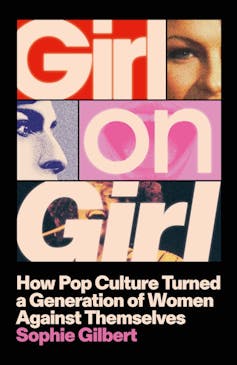Girl power and girl bosses have become catchphrases in the modern feminist lexicon, symbolizing a sense of empowerment and progress for women. However, beneath the surface of popular culture lies a complex web of exploitation, misogyny, and unrealistic expectations that continue to shape societal norms and attitudes towards women.
In her book “Girl on Girl,” journalist Sophie Gilbert delves into the intricate ways in which movies, TV shows, celebrities, and pop culture have perpetuated harmful stereotypes and behaviors that undermine women’s autonomy and agency. From the sexualization of young girls in teen comedies to the normalization of gendered harassment and abuse, Gilbert paints a vivid picture of how popular media has played a pivotal role in shaping women’s experiences and perceptions of themselves.
“Popular culture may seem fluffy and inconsequential, but Gilbert emphatically connects it to the material consequences of misogyny.”
Through a series of compelling examples and analyses, Gilbert highlights the insidious ways in which popular culture reinforces limiting ideals of femininity and beauty. From the exploitation of supermodels like Kate Moss to the public scrutiny faced by celebrities like Nicole Richie, she demonstrates how women are constantly subjected to unrealistic standards and objectification in the media.
Moreover, Gilbert’s exploration extends beyond mere critique, as she also examines the ways in which some cultural figures have challenged the status quo and pushed back against oppressive norms. From Lena Dunham’s candid storytelling in “Girls” to Catherine Breillat’s subversive take on sexuality in her films, Gilbert showcases the diverse efforts to disrupt traditional narratives of femininity and power.
“The responsibility for inequitable institutions is moved onto individual women to solve, rather than society being expected to invest in systemic change.”
One of the central themes that Gilbert grapples with is the notion of consuming feminism through popular culture. While there is a growing trend of celebrating feminist moments in media and promoting feminist consumerism, she questions whether true social change can be achieved through individual consumption alone. Can we buy our way to gender equality, reproductive rights, and workplace respect?
As Gilbert aptly points out, feminism has always been a grassroots movement, challenging systemic inequalities and advocating for broader societal changes. While popular culture can play a role in raising awareness and sparking conversations, it cannot replace the need for structural reforms and institutional support for women’s rights.
In a world where beauty standards are dictated by reality TV, social media influencers, and celebrity culture, it is essential to recognize the limitations of consuming feminism as a commodity. True empowerment and equality require a collective effort to dismantle oppressive systems and create a more equitable society for all individuals, regardless of gender.
“Despite its limitations, we need feminism in media and everyday culture.”
As we navigate the complexities of popular culture and feminism, it is crucial to remember that the fight for gender equality extends far beyond individual choices or consumer preferences. It demands a systemic overhaul of institutions and practices that perpetuate inequality and discrimination. By embracing a more holistic approach to feminism, we can work towards a future where women are truly empowered, respected, and valued in all aspects of society.









Leave feedback about this